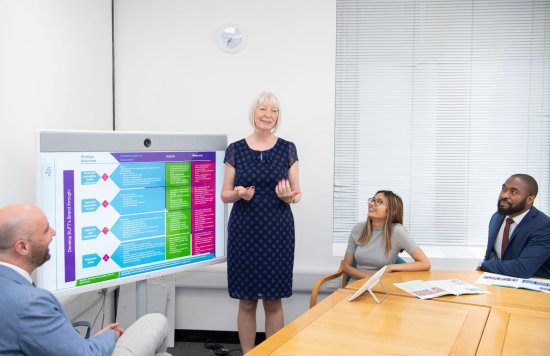I recall when I was a district nurse, being invited to do some talks to ward teams in the local hospital. It arose because we were seeing more cases of patients discharged home from hospital without knowing their diagnosis and prognosis.
This made it difficult for us to plan their care and have conversations with them and their families. I remember patients saying things like, “Well at least it’s not cancer. The doctor said it’s a growth/neoplasm/mass/tumour. If it was cancer, they would have said.”
I think medical staff expected the patient to understand the meaning of those words without having to spell it out. Words like 'prognosis' don't help either.
Most Difficult Part of the Job
I understood why it was hard for hospital staff to tell patients that they had cancer or a degenerative condition. Who wants to be the person that delivers such devastating and difficult news. In my talk, I sympathised with this but also stressed that when someone went into hospital for tests, scans or surgery, they were probably as prepared for bad news as it was possible to be. No one undergoes investigations or remedial surgery without hoping for the best, fearing the worst and keeping their fingers crossed. This, I argued, was the right time to impart honest and clear information.
The theme for Dying Matters Awareness Week 2024 is about the language we use around dying and end of life care, and how we can have sensitive and honest conversations. As an ex District Nurse and now someone who writes on a range of internal and external ELFT platforms, this is an area that really interests me.
Giving Patients Agency Over Their Own Lives
Not being explicit is simply delaying the inevitable. But worse than that, we were stopping that individual and their family from preparing and making plans. We were stopping a daughter in Australia from bringing forward a trip to spend precious weeks/months with a parent. Or a son from bringing their newborn to visit sooner. We could be thwarting important conversations, reconciliations, weddings or robbing people of the chance to bury the hatchet. Some may have wanted to tick a few things off their bucket list, fulfil a longstanding ambition or visit a special place one more time while relatively well. In short, in not speaking frankly and honestly with our patients, we were letting them down and not acting in their best interests.
Growing Distress
As they failed to improve and felt weaker, the patients I looked after suspected the truth. Whilst it might not have been appropriate for me to initiate or impose a conversation out of nowhere, if the moment arose, I would be honest if/when the patient asked. I remember one person saying to me …”Some days, nurse, I wonder if it’s my old cancer back. I’m just not getting any better.” It was heart-breaking but they were saying to me, 'I think I know and I’m saying it out loud to see what you say.' Often I might not have a lot of detail myself. I don’t recall my exact response but it would have been gentle. I would have tested what they had been told when in hospital and suggested that we asked their GP to visit to talk through the facts of their diagnosis.
I stopped being a district nurse over 20 years ago and things have moved on. And yet I know that we are not as clear and honest with patients as we should be when there is a terminal diagnosis – because it’s hard and we don’t want to take away hope and cause sadness.
Supporting Colleagues to Have Sensitive Conversations
It is a serious moment to tell someone that there are no more treatment options for them but their focus won’t be on the person delivering the information, but on the meaning of the information and their next steps. So the information needs to be clear and unambiguous.
We need to become skilled at formulating the words to deliver difficult news and gauge how best to explain complex information. We need to test what the person has understood and support them while they digest the news. In this way, we can support their decisions, choices and final wishes.
And of course we need to support colleagues who have these conversations and enable them to talk about the impact on them and their feelings.
***
See below for organisations that can offer support and advice:
Macmillan
Marie Curie
At a Loss
Sudden
Good Grief Trust
What to do when someone dies (Government website step-by-step advice)
NHS Confidential Bereavement Support (operated by Hospice UK). Call 0300 303 4434
Samaritans Call 116 123 free
